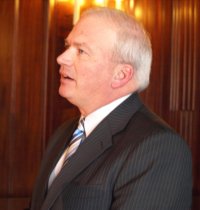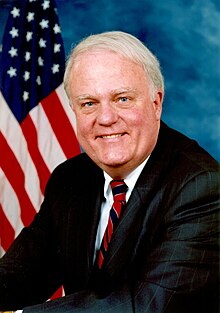I was taken aback by this summary of the lead story on the home page of The Washington Post website Monday evening:
What came to mind immediately were the similarities to the Foxconn deal Walker and GOP legislative leaders'negotiated' forced on state taxpayers, local residents, utility customers statewide, and the environment - - another thing to keep in mind when you read about environmentally-damaging plants in China:
* $4+ billion in direct public or road-building subsidies - - perhaps even better than "discounted loans" - - to be provided by state taxpayers.
* Along with extensive, separate grants provided by The Village of Mount Pleasant and Racine County now estimated at $911 million. That includes $88 million in water infrastructure spending pledged by Racine County to bring in a controversial Lake Michigan diversion - - high-quality water said to have been among the resources which made the region attractive to Foxconn in the first place.
* And "inexpensive electricity?" How about a $117 million new power transmission line to be paid for by 5 million customers statewide over 40 years.
* And project land described as greater than four square miles which is being acquired for Foxconn:
So perhaps the land is not 'cheap' on a per-square-foot basis or handed over by a business-friendly agency, but we're talking about working farms, dream homes and multi-generational homesteads in Wisconsin, in America, which were certainly cheapened by political agendas and state power.
So while US-China trade discussions are being driven by the same Donald Trump who also pushed the Foxconn deal for his own partisan presence in Wisconsin--

-- let's not pretend that only the Chinese use state power to manage the economy pump up businesses to hand marketplace control or political advantages to their leaders.
I've been following the turns, twists and traumas in the Foxconn story for more than 30 months, and have collected hundreds of posts into a running archive, here.
Initial U.S.-China trade deal’s big hole: Beijing’s massive business subsidies
Subsidies, in the form of discounted loans, cheap land, inexpensive electricity and more, are marbled throughout China’s state-led economy. This edge often makes it difficult for U.S. businesses to compete.I wasn't surprised by the recognition of so many business subsidies "marbled throughout China's state-led economy."
What came to mind immediately were the similarities to the Foxconn deal Walker and GOP legislative leaders
Gov. Walker exempted the Foxconn factory from any major environmental review. Last-minute changes by Trump political appointees at the EPA could keep Foxconn from making expensive improvements to reduce smogIn other words, Walker, with Trump's encouragement, made sure Wisconsin was playing a record-setting subsidies-and-favor, dare I say 'China-like' game for Foxconn, including:
* $4+ billion in direct public or road-building subsidies - - perhaps even better than "discounted loans" - - to be provided by state taxpayers.
* Along with extensive, separate grants provided by The Village of Mount Pleasant and Racine County now estimated at $911 million. That includes $88 million in water infrastructure spending pledged by Racine County to bring in a controversial Lake Michigan diversion - - high-quality water said to have been among the resources which made the region attractive to Foxconn in the first place.
* And "inexpensive electricity?" How about a $117 million new power transmission line to be paid for by 5 million customers statewide over 40 years.
* And project land described as greater than four square miles which is being acquired for Foxconn:
Foxconn is paying for the land through a $75 million special assessment included in a tax incremental financing district. A year ago, the Taiwanese tech giant also deposited $60 million into a village account for land acquisition.Let's remember that these privately-owned acreages and homes were acquired for the project by government actions through pressure, threats of seizure through eminent domain, bogus categorizations of 'blight,' and other tactics not unknown to authoritarian governments elsewhere.
So perhaps the land is not 'cheap' on a per-square-foot basis or handed over by a business-friendly agency, but we're talking about working farms, dream homes and multi-generational homesteads in Wisconsin, in America, which were certainly cheapened by political agendas and state power.
So while US-China trade discussions are being driven by the same Donald Trump who also pushed the Foxconn deal for his own partisan presence in Wisconsin--

-- let's not pretend that only the Chinese use state power to manage the economy pump up businesses to hand marketplace control or political advantages to their leaders.
I've been following the turns, twists and traumas in the Foxconn story for more than 30 months, and have collected hundreds of posts into a running archive, here.


















